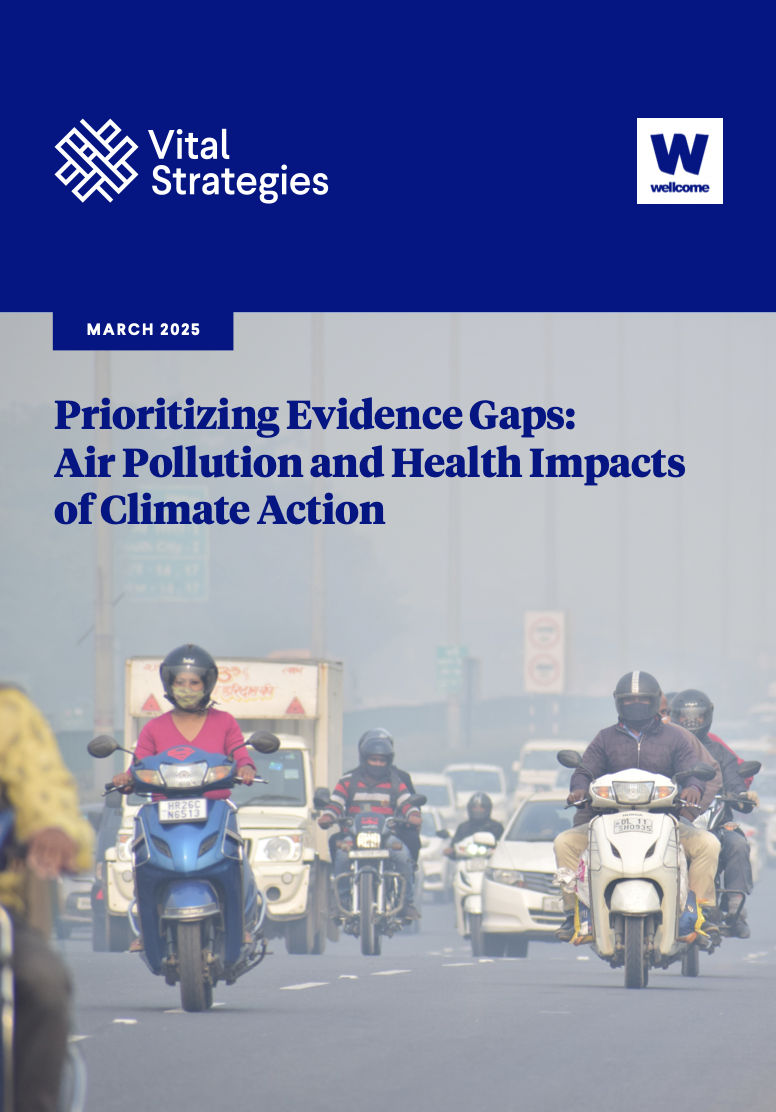Globally, around 8 million deaths are associated with air pollution each year. The vast majority of these deaths are caused by anthropogenic sources of combustion, including energy production, power generation, transport, waste burning, industry and biomass burning (for household energy and agriculture). These activities result in a complex mixture of health- and climate-damaging pollutants with warming and cooling effects, including particulate matter, ground-level ozone, carbon dioxide, nitrogen dioxides and sulfur dioxides. Climate action to address these leading global sources of pollution in a way that results in net-cooling would offer short-term benefits to health while providing longer-term benefits to the planet.
We conducted a rapid scoping activity to identify and prioritize gaps in the evidence base that may be limiting cities’ and countries’ abilities to demonstrate the health impacts of climate mitigation actions targeting combustion source air pollution.
Read the report here.
Download the executive summary here.
Recent Abstracts
Effects of Heat on Early Childhood Development
Blood Lead Surveillance of Children and Pregnant Women in Tamil Nadu, India
Sportswashing through Media: Coca-Cola’s Olympic Play – A Research Report
What’s in Our Food?
Mais Dados Mais Saúde
More Data, Better Health – Primary Health Care
Mais Dados Mais Saúde: Experiência De Discriminação Cotidiana Pela População Brasileira
More Data, Better Health – Experience of everyday Discrimination by the Brazilian population
Monitoramento de Estratégias pelo Fim da Violência contra Crianças e Adolescentes
Harm Reduction: The Neglected Pillar of US Drug Policy
